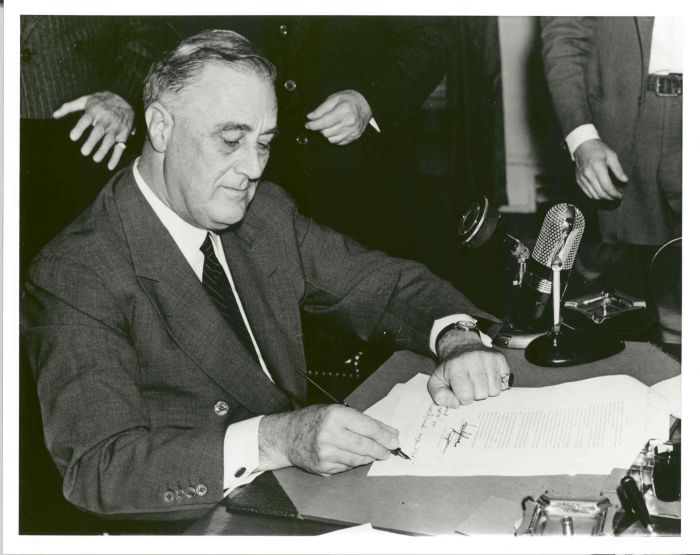The American Credit Union Industry Still Embodies Its Founding Values

The credit union industry is driven by its values. A look at some historical highlights leading to the establishment of the American industry shows the values upon which it was built. The first credit unions embodied responsibility, democracy, equality and solidarity. They had strong ethical characteristics of honesty, social responsibility and caring for others. They had democratic governance with each member having one vote, regardless of a member’s deposit size, and a member-elected board of directors. These are the values and governance model that credit unions employ today.
The first credit unions were formed in Germany in 1847, when failed harvests caused famines and severe hardship. Farmers and craft businesses had no access to bank services; they were forced to rely upon usurious private moneylenders. In response, two Germans independently took action. Hermann Schulze-Delitzsch founded the first “raw materials association” for carpenters and shoemakers in 1847, and in 1850 he established the first “thrift and loan association”, which is considered the first credit union. Separately, in 1847, Friedrich Wilhelm Raiffeisen created the first aid association in Weyerbusch for the rural population. In 1864, he founded Heddesorf Credit Union so that German farmers could purchase livestock, equipment, seeds and other farming needs.
Credit unions quickly began to spread across Europe from Germany. They even spread to India, which influenced their establishment in American. In 1901, Alphonse Desjardins founded the first credit union in North America, the Caisse Populaire de Lévis in Quebec, Canada. It provided affordable credit to working class families, who had been at the mercy of loan sharks charging outrageous interest. In 1908, Desjardins helped establish the first credit union in the United States, St. Mary’s Cooperative Credit Association in Manchester, New Hampshire.
The American movement, however, really started in Massachusetts, when The Massachusetts Credit Union Act became law in 1909. Edward A. Filene was instrumental in its passage, working to get the law enacted after traveling in Calcutta, India in 1907. Filene saw rural cooperative banks, many started by women, serving the people there. He realized that these types of cooperatives could help ordinary American workers access loans without falling victim to usury, and allowing them to save for the future. Filene personally displayed the values of the credit union industry.
As the force that built the Filene’s department store chain, he was an enlightened employer, believing that his employees determined his success more than any other factor. He took care of his workers, mostly women, offering them free health care, hourly breaks and meals. He was also instrumental in building the U.S. credit union movement. In 1921 Filene created the Credit Union National Extension Bureau (CUNEB) with the ambitious goal of creating effective credit union laws in all states and at the federal level. He also funded the effort.
Roy F. Bergengren had been a poverty lawyer, who was first hired by Filene to manage the Massachusetts Credit Union Association in 1920. There he promoted the development of credit unions, with the state chartering 19 within a year. Given the Massachusetts success, Filene hired him to head the newly formed CUNEB in 1921. Bergengren travelled the country appearing before state legislators and recruiting volunteer organizers. He stated in his passionate speeches: “The real job of a credit union is to prove, in modest measure, the practicality of the brotherhood of man.” In 1921 there were only 199 U.S. credit unions. By 1925, 15 states had passed credit union laws, and 419 credit unions were serving 108,000 members. By 1930, 32 states had adopted legislation with a total of 1,100 credit unions. By 1935, 39 states had passed the enabling legislation and 3,372 credit unions were serving 641,800 members.
The Federal Credit Union Act, which was signed by Franklin Delano Roosevelt on June 26, 1934, was the culmination of this effort. It created the national system to charter and to supervise federal credit unions. The individuals who built the industry over the years did so upon a foundation of the values of community service, ethics and fair dealing to benefit members and their communities. These values have been in place throughout the industry’s history from its inception in Germany 165 years ago.





